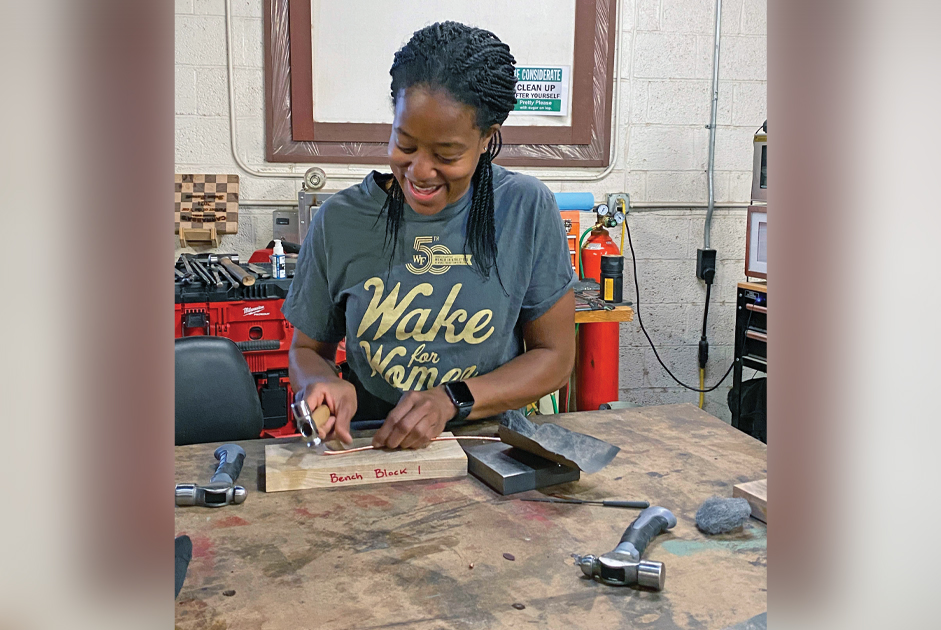BY TMOM BLOGGER DENNETTE BAILEY (ALSO AN EDUCATOR)
Self-confidence is a necessary attribute for anyone who not only wants to become successful, but also keep themselves safe and healthy. There are many successful people who are not well, because they do not see their worth and they may feel they are fake or going to fail any minute. Developing self-confidence early is imperative and it can be easily fostered with no fear of creating conceit, narcissism, or any of the negative connotations that one might falsely tribute to self-confidence.
The following is a list of 8 ways to help you in your endeavor to boost your child’s self-confidence.
1 – Set Goals
During the preschool years, teach your children how to set goals for themselves. This is a life-long skill, and it should be taught beginning at the age of 3. Ask your child what they would like to learn or what they wish they could do. Use the answer to that question to teach your child to set a goal. For example, if your child says he or she would like to know about the planets, you could set a goal to learn about one planet each week.
Consider also using problems to set goals. If your child gives you a hard time about what they will wear, give them a goal to learn their colors so they can get out their own matching outfit once or twice a week. Setting goals can become solutions to problems and reduce tantrums. Just make sure the goal is something your child is interested in, and not what the caregiver wants the child to know. You want your child to be motivated to achieve their goals. Life already gives us many lessons on how to complete tasks that we have no choice but to complete.
2 – Model Positive Talk
It is important that your child hear you speak positively about yourself. If you notice that sometimes when you make a mistake, you refer to yourself as stupid or dumb or crazy or not thinking, quickly reframe your speech. Say aloud—Daddy made a mistake or Mommy made a mistake—but I can fix it because I am smart. Often, our children pay more attention to what we do than what we say. Our actions must match our words, and both must be positive. If you made a wrong turn and yelled, “Oh man, I missed the turn—I can’t believe I’m so dumb,” and then you make the correct turn but do not talk about how you fixed it—the negative perspective will outweigh the fact that you eventually made the right turn. Your children love you and they want you to succeed. They, more than anyone else, want to hear what you have to say. So, make sure they hear you saying positive words.
3 – Acknowledge your Child’s Interests
Sometimes as parents, we have preconceived ideas of what our children need, what they must learn, and what they will like. However, consider observing your children during their play or during conversations with family and friends, and gauge what they seem to enjoy. What do they talk about? What do they ask to do? Use that information to plan activities and opportunities for them. Also, be mindful that engaging does not always have to be a big event. When I was a child, I liked to change the furniture around in the house. My parents permitted me to do that. They complimented me, and they would leave the furniture in the place I arranged it. That grew my self- confidence because it made me feel like my opinion was valued and that what I was doing benefited the family. This was something that did not involve my parents at all. They made no contribution, set up no specific date or time and provided no furniture shopping trips. But this allowance was significant in boosting my confidence and surely served to counteract some of the negative interaction they imparted during my childhood.
4 – Reinforce What They Already Know
Help your child see the relevance of what he or she is now learning to what they already know. For example, knowing colors helps your child decide what to wear or how to pick out their own bedding. Show them that because they know the sounds of the letters, they can learn how to read, or because they know about plants, they can plant their own garden. Also, acknowledge aloud to your child that you notice they know things. Comment on how they helped you or how, if it were not for their knowledge, you, the parent, might not know some specific information. Let them hear you say that the things they learn are helpful to them and to the people around them.
5 – Ask Questions and Allow Them to Answer
If we had an opportunity to listen to ourselves throughout the day, we might be surprised, particularly in interacting with young children under the age of 6 years, at how many times we ask them questions and then answer the questions ourselves. We must give children the opportunity to answer. Please understand that it may take some time for your child to answer. Be willing to tell your child that you will go and do a task and come back to them for an answer. If you ask If they want a drink, they will not die of thirst if they do not tell you immediately. If your child has difficulty making decisions, show them that they can think about it and even answer another time by not, for example, having a drink until the next time it is available. Also, be sure to ask them open-ended questions, not just “Yes” or “No” questions. This is how our children learn to think.
6 – Encourage your Child to Share and Help Others on Purpose
Children as early as three years of age can have a project to be a helper. When we do things for other people, it makes us feel good about ourselves. Ask your child how they felt when they shared or helped another person. This will help them as they grow older to have the words and actions already available to them that help them boost their self-esteem and help them move themselves away from negative thoughts and feelings.
7 – Praise your Child
Offer praise about your child in front of other people. Make sure the praise is relevant to the conversation at hand, but let your child hear how you love and respect them and think of them in front of other people. Talk about how they have helped other people, so that they understand there is value in their praise coming as a result of their thoughtfulness regarding others, and not just in how great they can be in their own eyes.
8 – Believe in Them
Purposely let your child know that you believe in them. Leave notes for your preschooler that say, “I love you,” or “You are special to me.” Tell your child that you value what they think and what they say. Model this by picking times that you might otherwise be distracted and instead, play a game or talk. For example, if you already know you have a work call during a drive, play a short word game first or say an affirmation or ask your child what they hope will happen during the day and make positive comments about their hopes. This way they feel that they are a priority even when they must share your time.























